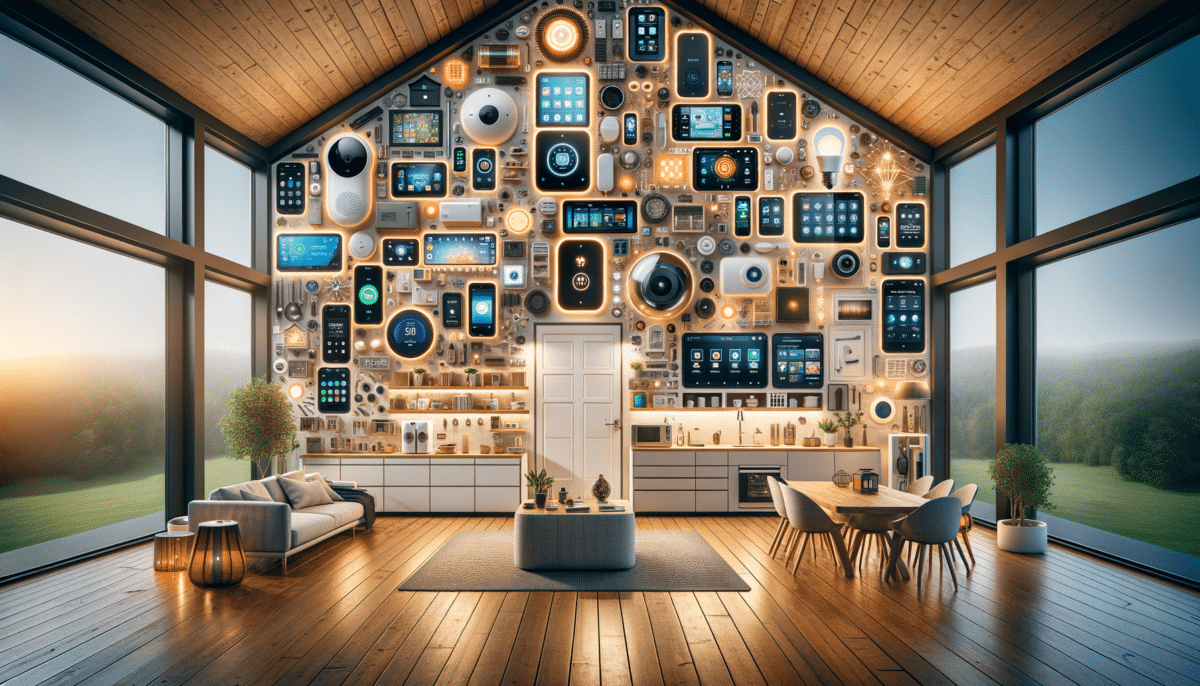Understanding Smart Technology
Smart technology refers to devices and systems that use advanced computing and communication capabilities to perform tasks that traditionally required human intervention. These technologies are designed to make life more convenient, efficient, and secure. From smart thermostats that learn your temperature preferences to security cameras that alert you of suspicious activity, smart technology is becoming an integral part of modern life.
One of the key features of smart technology is its ability to connect to the internet, allowing devices to communicate with each other and with users. This connectivity enables remote control and monitoring, making it possible to manage your home environment from anywhere in the world. The integration of artificial intelligence and machine learning further enhances these devices, enabling them to adapt to user habits and preferences over time.
Smart technology is not just limited to homes; it is also being used in various sectors such as healthcare, transportation, and energy management. In healthcare, smart devices can monitor patient health and alert medical professionals in case of emergencies. In transportation, smart technology is used in autonomous vehicles and traffic management systems to improve safety and efficiency. The potential applications are vast, and as technology continues to advance, the possibilities are endless.
Smart Home Devices: Convenience at Your Fingertips
The rise of smart home devices has transformed the way we interact with our living spaces. These devices offer unparalleled convenience, allowing users to control various aspects of their home environment with just a few taps on a smartphone or through voice commands. Some popular smart home devices include:
- Smart Speakers: These devices serve as the central hub for many smart home systems, enabling voice control for various connected devices.
- Smart Lighting: Smart bulbs and switches allow users to control lighting remotely, set schedules, and even change colors to suit their mood.
- Smart Thermostats: These devices learn your temperature preferences and adjust settings automatically to enhance comfort and energy efficiency.
Beyond convenience, smart home devices also contribute to energy savings and security. For instance, smart thermostats can reduce energy consumption by learning your schedule and adjusting temperatures accordingly. Similarly, smart security cameras and doorbells offer real-time monitoring and alerts, enhancing home security.
As more devices become compatible with smart home systems, the potential for creating a fully integrated smart home environment grows. This integration not only simplifies daily routines but also offers peace of mind, knowing that your home is secure and energy-efficient.
Smart Technology and Energy Efficiency
One of the significant benefits of smart technology is its potential to improve energy efficiency. By optimizing energy use, smart devices can help reduce utility bills and minimize environmental impact. Smart thermostats, for example, adjust heating and cooling based on occupancy and weather conditions, ensuring that energy is not wasted when no one is home.
Smart lighting systems also contribute to energy savings by allowing users to control lights remotely and set schedules for turning lights on and off. This feature is particularly useful for reducing energy consumption in areas that are often left illuminated unnecessarily, such as hallways and outdoor spaces.
Moreover, smart appliances, such as refrigerators and washing machines, are designed to operate more efficiently by adjusting their energy use based on demand. These appliances can also provide users with insights into their energy consumption patterns, enabling them to make informed decisions about their energy use.
As the world becomes more conscious of the need for sustainable living, the role of smart technology in promoting energy efficiency will continue to grow. By embracing smart technology, users can enjoy the dual benefits of convenience and sustainability.
Enhancing Security with Smart Technology
Security is a top priority for many homeowners, and smart technology offers innovative solutions to enhance home security. Smart security systems provide real-time monitoring and alerts, allowing users to keep an eye on their property from anywhere in the world.
Some of the most popular smart security devices include:
- Smart Cameras: These devices offer high-definition video surveillance and can be accessed remotely via smartphone apps.
- Smart Locks: Smart locks provide keyless entry and can be controlled remotely, offering convenience and peace of mind.
- Smart Doorbells: Equipped with cameras and intercom systems, smart doorbells allow users to see and communicate with visitors before opening the door.
In addition to these devices, smart security systems often integrate with other smart home devices, such as lights and alarms, to create a comprehensive security solution. For example, if a security camera detects motion, it can trigger lights to turn on and an alarm to sound, deterring potential intruders.
As smart technology continues to evolve, the capabilities of smart security systems will expand, offering even more robust protection for homes and businesses alike.
The Future of Smart Technology
The future of smart technology is bright, with continuous advancements and innovations on the horizon. As technology becomes more sophisticated, smart devices will become even more integrated into our daily lives, offering new levels of convenience and efficiency.
One area of development is the integration of artificial intelligence and machine learning into smart technology. These advancements will enable devices to learn and adapt to user preferences more effectively, providing a truly personalized experience. For example, AI-powered smart assistants will be able to anticipate user needs and offer proactive suggestions, enhancing the overall user experience.
Another exciting development is the expansion of the Internet of Things (IoT), which will connect even more devices and systems, creating a seamless and interconnected smart environment. This expansion will lead to new possibilities for automation and control, making everyday tasks easier and more efficient.
As smart technology continues to evolve, it will play a crucial role in shaping the future of various industries, from healthcare to transportation. By embracing smart technology, individuals and businesses can stay ahead of the curve and enjoy the numerous benefits it offers.
